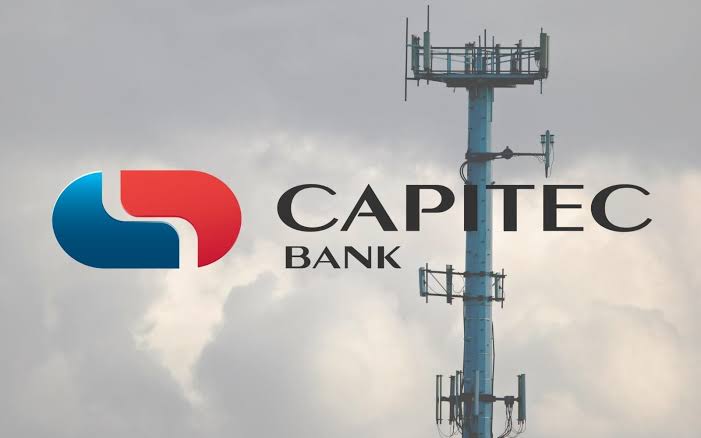Capitec has launched its own mobile virtual network operator (MVNO) Capitec Connect. The bank wants to shake up the local prepaid telecoms market. Data prices are 50% below the normal market price and rates don’t change no matter how much data a customer buys.
Following in the footsteps of other regional banks that have entered the telecom services market, Capitec, which has the most customers of any retail bank in South Africa, has launched Capitec Connect, a new product which is its own mobile virtual network operator (MVNO) service.
In South Africa, Capitec has long been viewed as a challenger bank, lowering banking fees to make banking more affordable for individuals with lower incomes and those who hadn’t previously banked.
Capitec Connect wants to shake up the local prepaid telecoms market by offering data prices that are “on average 50% below the normal market price” and rates that don’t change n;o matter how much data a customer buys.
“South Africans have been complaining about the cost of data has It’s expensive and complicated. Bundle pricing, off-peak and peak rates, and the fact that your data has expired are all things that make no sense. We’re changing this by giving our clients access to a mobile solution that is simpler to understand, much more affordable and can be recharged easily on our digital channels,” Capitec CEO Gerrie Fourie said in a statement.
No Expiration Date For Data Plans
Another intriguing aspect of the new MVNO is that, unlike most other local providers, its data will not expire as long as the SIM is used at least once every six months.
In South Africa, data bundles typically have a 30-day validity period, however, if you pay less, you may be able to get promotional offers with shorter validity periods.
A draft rule from 2017 from the Independent Communications Authority of South Africa (ICASA) said that data should be valid for at least three years. However, the regulations were later replaced with more lenient ones. As of April 2022, the most recent recommendation said that data should be good for at least six months.
All Capitec branches provide Capitec Connect SIM cards, and customers can link up to five SIM cards to their profile, according to the bank.
“Our vision is to bring connectivity to all. We want to help create opportunity for everyone to be able to connect with access to affordable data and digital banking anywhere, anytime, “added Fourie.
Users can get cellular services from an MVNO without having to pay for the network infrastructure. The new MVNO from Capitec will use Cell C’s network, like the majority of MVNOs in South Africa.
Read: 54Gene uses AWS technology to enhance diversity in genomics research in Africa
Capitec Loses R71.5m tax case against SARS
SARS, The South African Revenue Service has finally been able to stop Capitec from getting the R71.5 million VAT refund it asked for back in 2017.
When Capitec turned in its VAT return in November 2017, it asked SARS for a tax deduction of R71.5 million. SARS turned it down. Since then, the tax agency and the bank have been in a long legal battle. Because the bank had As it understated its VAT liability at the time, SARS further assessed a 10% late payment fee.
At first, the Tax Court in Cape Town ruled in favour of Capitec, declaring that the bank was allowed to subtract this sum from its VAT obligation. SARS brought the case before the Supreme Court of Appeal (SCA), which in Bloemfontein confirmed on Tuesday that the tax collector’s assessment was accurate.
Regarding its unsecured lending business, Capitec claimed an input tax deduction. Customers who received personal loans from Capitec received insurance coverage, or “loan cover,” that would pay off their debt in the event of a death or layoff.
Guardrisk began underwriting this insurance on May 1, 2015. Prior to that, Channel Life Insurance underwrote the loan coverage. Also, when these policies were paid out, Capitec didn’t lose any credit because it had bought insurance against the amount that was underpaid.
The bank was compensated for services rendered in the amount of R582.4 million during the 2014–15 VAT year. The R71.5 million deduction made by Capitec represented the tax portion of the overall insurance benefits.
On February 15, 2018, SARS issued a VAT assessment, which was later denied on the grounds that Capitec did not meet the requirements for a deduction under section 16(3)(c) of the VAT Act. At the same time, it also imposed a 10% late payment fine due to what it considered an underestimate of Capitec’s current VAT liability.
SARS said that the payments did not qualify for an input tax deduction because the loan cover was given as part of Capitec’s normal practice of giving credit to its clients and the bank did not charge a separate fee for the loan cover. So, rather than being a “taxable supply,” it was an “exempt supply.”
SpaceX and T-Mobile to provide satellite connectivity for smartphones
However, Capitec countered that while it was not levying a separate fee for its loan cover, the loan cover was crucial to its unsecured lending operation and was responsible for producing both interest and fee income. It claimed that through such money, the cost of providing the loan cover was recouped.
Since Capitec’s customers got loan insurance for free, the company said that this did not meet the definition of a “business” in the VAT Act because it was not for profit. As a result, it was not subject to taxation as required by law. The VAT Act says that businesses that use the VAT system must charge a fee for the goods or services they sell.
This expansion by Capitec into Capitec Connect would go a long way in making Capitec a big name in the tech industry, especially in South Africa. With the No Expiration Date package, one can predict that they would be quickly accepted by the South African audience.

